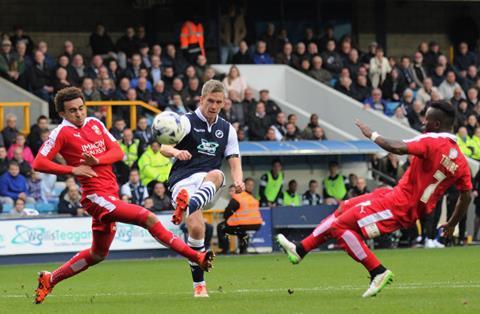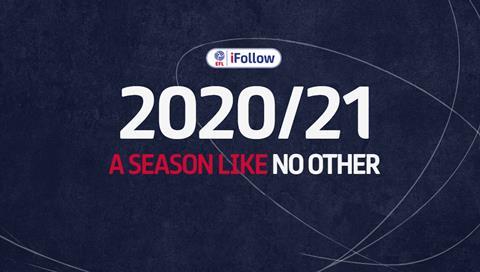Chief commercial officer Ben Wright told Broadcast Sport, “10 years from now, are you and I having a conversation about the 3pm blackout? Yeah, I’m not sure.”

The EFL issued a Request for Proposal (RFP) for parties interested in its broadcast rights this week, which quickly gained attention for a number of innovations that the organisation is open to enacting.
All 1,891 matches across the League, EFL Cup, EFL Trophy and all end of season Play-Off matches are available for prospective bidders, which if taken up would have implications for the 3pm blackout, and the EFL has also signalled that it would be open to global rights deal in the style of MLS’ agreement with Apple TV.
Bidders must submit responses by 5pm on 21 November 2022 to have their proposals considered. The EFL’s current deal is with Sky Sports, whose agreement ends after the 2023/24 season.
Broadcast Sport sat down with EFL chief commercial officer Ben Wright in the immediate aftermath of the RFP’s release, and he explained the EFL’s thinking behind the move.
“I think there’s a number of factors,” Wright began. “The one thing we’ve got is a lot of volume. So 1,656 league matches alone, and on an average weekend at the moment in the UK, which is our biggest market, we’re making 5%, that product available live in 2022. Is that a contemporary approach?
“That’s a key thing, are we are we matching consumer demand? We did a lot of research, and there’s a demand for more content from fans.”
As for fears that this could end the 3pm blackout, which is in place to protect attendances lower in the football pyramid, Wright added: “That’s not actually what the document says [that the EFL will end the 3pm blackout]. What the document does say is we want to stress test it, because that model has been in place for a long time, for very good reasons, but we know that consumption habits have changed.
“I think we’ve got a really serious number of fans who say, ‘I’m committed to going to my home matches, and that’s part of my routine, but every other Saturday, I really wish I could watch my team and I don’t want to go to the away game.’
“So if we limited ourselves and go into market and said, well, actually, we want to make X number of matches available and we’re not prepared to look at the whole pie, we’d never know what that opportunity would have been.”
“We’ve looked at making all [matches] available, and we’ve also looked at different scenarios,” Wright explained. “We’ve also had conversations about making portions or elements of that available and still leaving an element of that protected.
“That might mean that we move a percentage of each division, or it might be that we move X number of clubs’ home matches per season, or that the clubs have the ability, should they wish to, to move out of the window and stream or broadcast themselves. But at the moment, what we’re trying to do is get options around that, more than a fixed position.”
One of the drivers behind this desire to hear what is available for the EFL is the experience clubs had during the pandemic, when all matches were available to stream and broadcast - and large revenues were brought in through the EFL’s D2C iFollow platform. Wright said: “We’ve been talking to clubs for the last 12 months, and saying, ‘listen, we’ve got a set of agreements that expire in 2024 and we’re standing by those, but what do you think a modern approach looks like?’”

He added: “I’m looking at that as how does a modern football fan aged 30 and younger consume stuff? That’s only going to keep changing. So, fundamentally, I think you get to a point, 10 years from now, are you and I having a conversation about the blackout? Yeah, I’m not sure. But that model has been in place for a long time, for good reason, so we want to explore and stress test what moving away from it might look like, or it might be a transition. What I don’t want to do is put 5% of our weekend content out, and the clubs are in that place too.”
This wouldn’t necessarily mean more games being shown directly through iFollow, at least in the UK. “Everything’s open. If a broadcaster or OTT provider came to us and said we want 100 matches and you can’t show them through club platforms in the UK, we’d look at that.”
However, Wright thinks this may be unlikely to happen: “I think the chances of us fully coming away from that, particularly outside of the UK, and not provide any kind of service where [demand] might exist. I’m not sure about that. I think there will always be an element of that. But, is there a chance that those services are taken on by a third party in the UK? Absolutely.”
Wright made clear that greater access to content doesn’t need to be through a streaming platform or similar as well, with free-to-air live matches “absolutely” an option for the EFL - and one that they hope free-to-air broadcasters would be interested in as part of a rights mix that might also include pay-TV or a streamer.
Mentioning pay-TV, the EFL is also not against remaining with Sky. Wright made clear that he believes pay-TV is an “extremely relevant” part of the mix but the market is evolving - and added: “If Sky remains our partner, do I see that the output staying the same as it currently is, around weekends in particular? No.”
A global rights deal is also an option, with Wright believing that is the future of rights deals as “technology transcends territory”.
Whether opening up their rights in this fashion could cause Premier League games to be broadcast at the same time as lower league matches, Wright is confident that the EFL could hold its own in a free market: “We’ve got confidence in our own product, and I think our research shows that there’s a demand there. Our attendance is a strong, up 11% over last season, and if you look at the way the Premier League schedule, they don’t tend to schedule that many matches at 3pm on Saturday up against our stuff anyway.
“So, I think, yes, in a free market, there is that possibility, but ultimately, I think we’ve got to be confident in what we’re doing and take a modern approach.”
For now, the Telegraph reports that the Premier League would not look to do this.
Wright summed up: “I go on Twitter a lot on a Saturday afternoon when our matches are taking place and I look at all the people trying to access a free stream. There’s a reason they’re trying to do that. The main reason is because they can’t get it. There’s an element that shows that’s the frustrated demand.
“We’ve got to consider what other rights holders might do, what the impact on some of our other economic factors might do, but we’ve also got to have an eye on where does this go? To go back to it, I think it’s a transition conversation because fundamentally I don’t believe in ten years’ time we’re having the same conversation.”




No comments yet